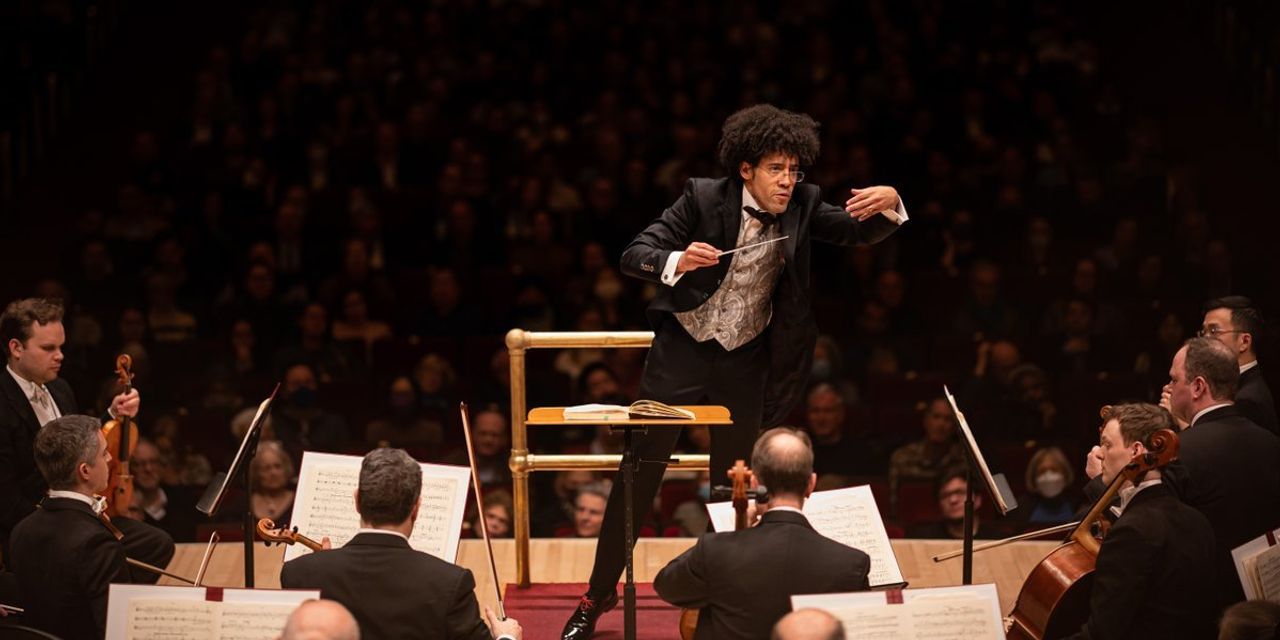Superstar conductor Rafael Payare has landed in Montreal after a career that’s taken him to Paris, Vienna, London, Munich, Chicago, and Berlin.
Payare, who recently completed his first season as music director of the Montreal Symphony Orchestra, holds the same title with the San Diego Symphony, and remains Conductor Laureate of Northern Ireland’s Ulster Orchestra.
Born in Venezuela, Payare graduated from the country’s famed El Sistema music-education program. According to Payare’s official bio, legendary El Sistema founder José Antonio Abreu was so impressed with Payare’s talent that Abreu personally taught him orchestral conducting.
The week before he spoke to Penta from Montreal, Payare, 43, led the London Symphony Orchestra in a program of Gubaidulina, Shostakovich & Stravinsky. His 2023 calendar will see him commute between Montreal and San Diego.
You hold the title of music director for two orchestras. What exactly does your job involve?
The artistic part is working with the team to program the orchestra’s repertoire. We’ll put several seasons together, and try to make an arc. We want it to be a journey for the audience, but on a train rather than a plane. You’re not getting into a tube to see a few clouds. It’s more seeing the landscape and how it’s changing, and getting to try different cultures, countries, and food at every stop.
As far as the orchestra, I try to convey to the wonderful musicians I have in front of me to all be on the same page. It’s like poetry. We can all read with different accents or enunciation. With 100 people on the stage, we have to all read the same way.
How are audiences different in San Diego versus Montreal?
There aren’t really differences in audiences. The core is the music, and what’s come before. I try to see what’s been done in San Diego, and in Montreal, over the last 20 to25 years. In San Diego, for example, not much Schnittke has been played. We’re doing a Mahler cycle in both cities, which hasn’t been explored as extensively as I’d like.
More: Michael Jordan’s ‘Flu Game’ Sneakers Sold for $1.4 Million
With international figures like you, Gustavo Dudamel, and Natalia Luis-Bassa, Venezuelans are highly represented in classical music. Is it something in the water?
[Laughs]. I was lucky enough to be born in the Venezuela of a visionary named Jose Antonio Abreu, who founded the El Sistema program in 1975. The way music is taught is a little unorthodox. You start playing an instrument, but you also play in an orchestra. So you learn to play while being part of something bigger. You jump through hoops without realizing it. Then you get really good at your instrument, and you never stop trying to get better. The better you get, the sound becomes more harmonious.The 2022 film Tár offered a glimpse at the classical music world. Did it have any relation to reality?
Some isolated things in the movie could happen. But all aligned in one person? That’s fictional. It’s like seeing a movie about a footballer, and everything happens to him, including winning the World Cup. What’s impressive about the movie for people in classical music is that the information in it is accurate and correct. They name real conductors. The CDs and LP covers you see are real. But it’s a movie about one character in a spiral.
When you moved to Montreal, a lot of coverage noted that you had to learn French. How did you pick it up?
I started with Berlitz, six or seven hours a day for three weeks before the announcement that I joined the OSM. I could defend myself a bit in French with media. Immersion is the best thing for language. I was in London before this, speaking English and doing an Italian opera.
What are the challenges in starting over in a new city?
Well, there’s the part of getting to know the city. I came here in the summer, had a car, and right away got two parking tickets. As far as the musicians, it’s not really a challenge. We’re all aiming for the same thing—how will we take our wonderful audience with us? I’m also spending time on auditions. But that’s an incredible experience, not a challenge.
What’s it like performing at La Maison Symphonique, the Montreal Symphony Orchestra’s home?
It’s an absolute jewel, really wonderful. The hall’s just 10 years old, and it’s magnificent. I’ve been with other orchestras in different halls, and it can be complicated to get an amazing instrument. This hall enables us to try to achieve even greater things. When you have an instrument like this to play, you feel lucky and blessed.
More: MarieBelle Chocolatier Maribel Lieberman’s Favorite Things
What’s a good entry point for someone who has zero experience listening to classical music?
For a live concert, easily Tchaikovsky—all these melodies. Shostakovich—you just feel the power of it. Strauss as well. We’re doing “Don Quixote” at the end of the month.
There’s been hand-wringing around sustaining a public for classical music and opera. What do you think is key to reaching new audiences?
I think it’s about exposure, and getting people to experience it. For many decades, people have thought classical music is not cool for young people. That’s not true at all. I fell in love with it when I was 14, with no background in classical music. The more you expose people to it, the more the music grows inside you, and you want to feel it a little more, then you want to bring friends to share it.
When you’re not working, what’s on your playlist?
I’m open to anything. If I’m in the car, it’s just the radio. Music’s in my head all the time. Sometimes I have to turn it off.
This interview has been edited for length and clarity
Read the full article here













